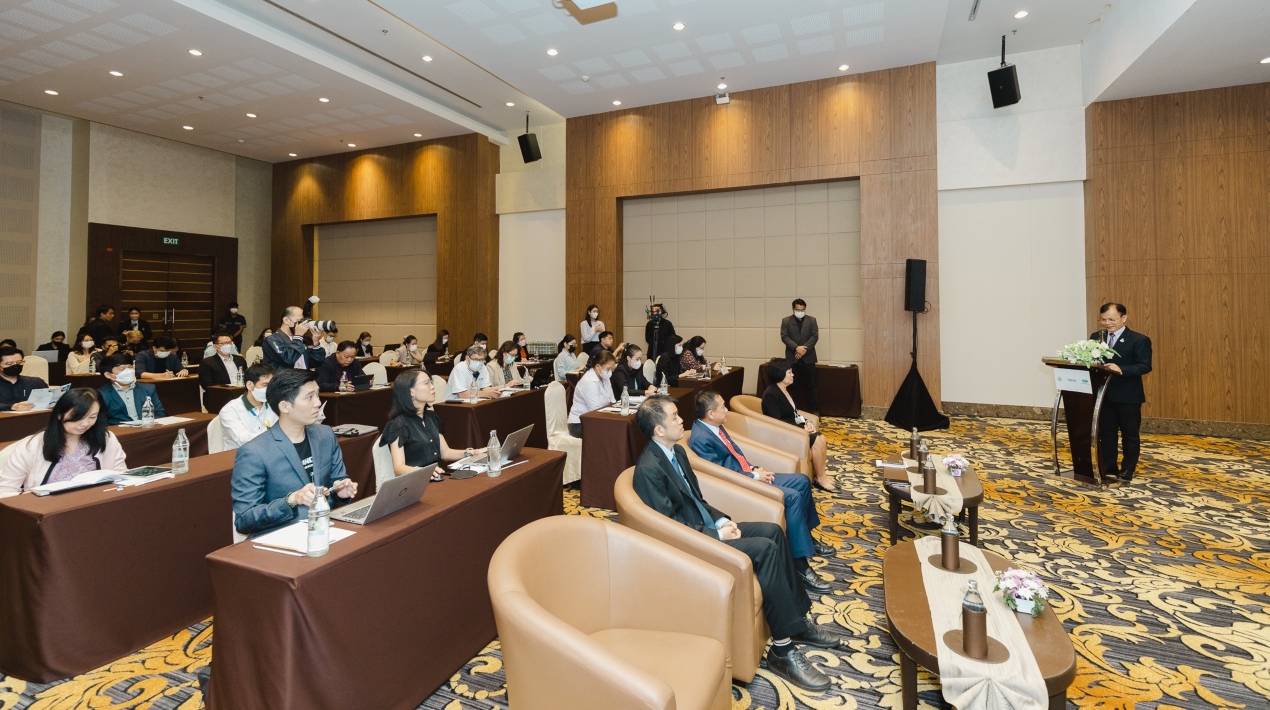
Puchphong Nodthaisong, the Secretary-General of the National Digital Economy and Society Commission (NDESC) unveiled that Thailand has created 11 ICT professional skill standards under the NSC, including software development, big data analysis, and artificial intelligence. The standard supports an environment favourable to innovation and technology in Thailand by allowing business owners to evaluate their employees’ skill sets concerning industry norms.
He revealed the norm during a meeting between the Digital Economy Commission of the Office of the National Society (NorChor) and representatives of APEC economic zone countries. The purpose of the gathering was to talk about common standards for ICT professionals in the field of artificial intelligence (AI) and to share ideas for how to get the word out about these standards. According to Puchphong, The Association of Southeast Asian Nations (ASEAN) has adopted these professional skills standards, and each member country has linked to its own professional skills standards.
Permanent Secretary for Digital Economy and Society (MDES) Professor Wisit Wisitsorn-at presided over the meeting and emphasised that today’s state-of-the-art AI technology may improve productivity across industries and boost their ability to compete globally.
Professor Wisit said that Thailand’s Ministry of Digital Economy and Society, in collaboration with the Ministry of Higher Education, Science, Research, and Innovation, has developed a strategy to advance artificial intelligence in the country. On July 26, 2022, the Cabinet authorised the plan to boost AI development, enabling the economy and people’s quality of life.
The National Artificial Intelligence (AI) Action Plan was created as Thailand prepares for Thailand 4.0. To guarantee that Thailand’s development is grounded in accountability, transparency, and justice for the benefit of all sectors, particularly vulnerable groups, the plan supports AI ethics and collaborates with stakeholders to build ethical guidelines.
The plan will boost the country’s technological competitiveness by fostering talent and establishing an ecosystem. The initiative’s goals include improving the economy, society, and the environment. According to Thailand’s Prime Minister Prayut Chan-o-cha, the action plan would construct a central platform for AI services and encourage the growth of AI human resources in Thailand by training at least 13,500 people annually.
In a recent meeting, Puchphong Nodthaisong, Secretary-General of the National Digital Economy and Society Commission, discussed the implementation of AI Ethics & Governance with representatives from the Electronic Transactions Development Agency (ETDA) and the National Science and Technology Development Agency (NSTDA). The gathering was a promising first step towards advancing the responsible deployment of AI in the digital economies and cultures of Thailand.
Meeting attendees heard from Teerawut Thongphak, Head of the Digital Technology Infrastructure Division, about the clinic’s plans, organisational framework, and operational processes for governing artificial intelligence (AI). The group also discussed how to implement better Thailand’s National Artificial Intelligence Action Plan for Development (2017-2027), which aims to make the country’s culture, ethics, legal structure, and legislation suitable for the usage of AI.
Thailand continues to push digitalisation throughout the area, in addition to its focus on AI research. Community-based tourism is an idea that has been considered at length by the Digital Economy Promotion Agency (depa), as is creating a network of “must-travel” towns.
Depa plans to map out a route to essential locations in the central and eastern areas as part of its effort to develop a community tourism calendar. Depa also emphasised the importance of attracting Thai and foreign tourists by telling the experiences of local elders as a means of adding value to products and services through digital technologies. More than 30 million baht in revenue is forecasted from the project. Depa also wants to build a database system to facilitate the development of high-calibre tourism.
















